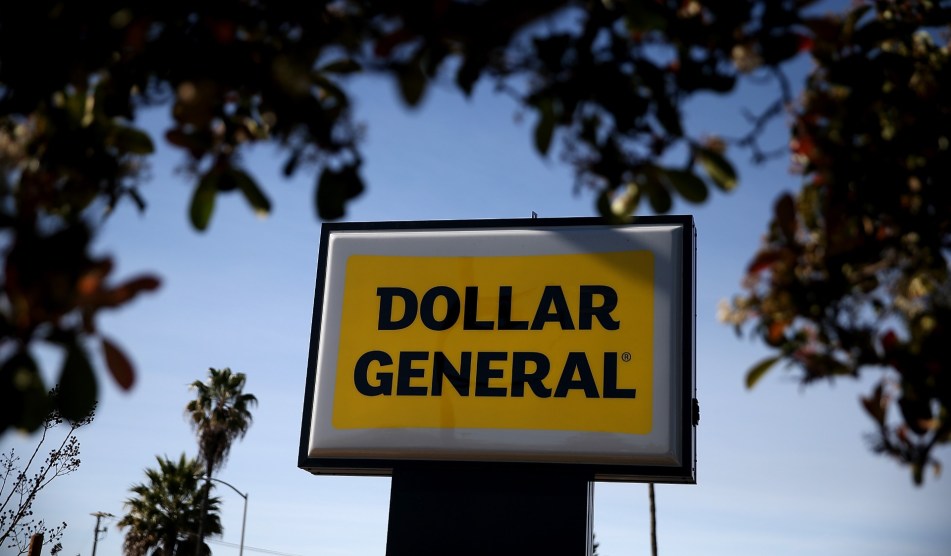
Spencer Platt/Getty
Back in 2002, after two years of bankruptcy proceedings, a North Carolina pillow manufacturer hired a Reebok executive named David Perdue to right the ship. For Pillowtex, Perdue’s experience with outsourcing jobs was part of the appeal. (“I spent most of my career doing that,” he admitted later in a deposition.) He was a cost-cutter. He was a winner. And, with few options, at the end of 2002 Perdue indeed helped develop a four-year plan, according to a Charlotte Observer investigation, to fix the firm. Its key recommendation: “wiping out most of Pillowtex’s U.S. jobs.”
But in the end, Perdue’s plan to aggressively market pillows and textiles while moving jobs overseas failed. Executives blamed the overall death of the industry that loomed on the horizon; in 2005, the United States would finish phasing out its quota on textile imports, allowing freer trade and less protection for local manufacturers. But that wasn’t the only impediment. There was also Perdue himself.
After starting at the company in June, he was a seemingly absent boss. An industry magazine joked about giving him directions to Pillowtex headquarters as a Christmas gift. By the end of 2002, only a half-year into his tenure, Perdue was even claiming he had been lied to, asked to take on a doomed firm with too much debt. Things unraveled pretty quickly, and during his final months, he took everything he could get: $700,000 to pay back taxes, $100,000 for relocation, $500,000 to stay on to potentially negotiate one final deal (that did not happen) to save Pillowtex. Over his nine-month tenure, he earned a salary of $1.7 million. A lawsuit later bluntly called his exit a “money grab.”
At the same time, Perdue began looking for another job—“I had the prospects of being unemployed with no severance protection at that point in time,” he explained. Meanwhile, 7,600-plus Pillowtex employees would soon be laid off as the company cratered to a second death. It led to the largest day of job loss in the history of North Carolina to that point.
Perdue landed on his feet though. In December 2002, he interviewed to become the new CEO of Dollar General, taking over as chief executive the following year. Over the next four years, Perdue would again make millions. And when he left, he would again be sued for possible profiteering on the way out.
You can see a pattern. And while Perdue is now out of the business world, representing Georgia in the US Senate and fighting for his political life against Jon Ossoff, the continuance of smash-and-grab self-help is striking.
As a senator, Perdue has been investigated for the ways in which he has seemed to enrich both himself and his donors with, let’s call them, incredibly convenient and prescient stock trades, though he has repeatedly denied the charge of insider trading. It’s this corruption—involving both Perdue and fellow Republican Sen. Kelly Loeffler, who has been investigated for similar stock trades—that gives Democrats a crucial opening in a decisive Georgia runoff in early January.
Yet, in that mix, you do not hear much talk about Pillowtex or Perdue’s time heading Dollar General—even though the Republican senator’s business record has been reported on before. It was rehashed at length in 2014 during his initial run, under one of the more anodyne headlines you’ll see: “Perdue’s business record mixed.” These days, Perdue mostly brags about being a “job creator” and an “outsider” businessman, seemingly inclined to ignore the details.
While we know Loeffler oversaw a “mini-Enron,” as my colleague David Corn reports, what do we call Perdue’s record then? It doesn’t seem “mixed.”
Pillowtex is certainly the more sordid of the tales from that era, an easy case of big business bottoming out with executives getting paid and workers getting laid off. Perdue might not have been liable (the lawsuit against him went nowhere), but that doesn’t make it any less true he was fine, and many workers were not.
Dollar General is perhaps the more revealing story though. Unlike at Pillowtex, where he claimed he was just a poor innocent who was misled, Perdue knew what he was getting into with the chain of convenience stores. By 2002, Dollar General had grown from a Kentucky father-and-son-operated shop to 5,891 national locations on a gimmick: What if everything cost only a dollar? To sell stuff on the cheap, the stores kept wages low. The credo from the early days was for wages to be 5 percent of gross sales, according to ProPublica. Perdue’s job when he took over in April 2003 was to expand while keeping costs—and wages—down. That could allow for cheap goods, and in doing so, as a former analyst explained to me of the model, “they’re pricing out general stores.”
“Dollar General is a great company with clear mission and purpose,” Perdue said in a statement upon taking the gig. Within days of his appointment, the company announced more stores were opening. Over the next year and a half, Perdue was appointed chair of the board to add to his CEO distinction, and the mass expansion of stores continued; by December 2004, Dollar General said it had opened 667 stores in just one fiscal year.
As we’ve reported before, Dollar General’s mass expansion was part of a trend: Cheap stores, with shit jobs, flooded communities over the past few decades. In the early 2000s, you saw see this expansion en masse. Announcements regularly rolled in, year after year, extolling store opening after store opening. Financial reports and investigations over the years elucidated the stores’ strategy: They wanted to serve low-income and low-population areas. By 2006, Dollar General operated 8,190 stores nationwide.
But, uniquely, Dollar General also began to operate larger shops more akin to grocery stores. By 2007, the company had 56 locations with offerings more like tiny Walmarts. This was part of Perdue’s plan, too. And it is why Dollar Generals have become the last resource for many consumers in poor and rural locations. This was job creation through job displacement. Perdue created more Dollar General workers, sure, but by pricing out other businesses and other, potentially better employers. This proved true everywhere from New York City to Sioux City, Iowa, to small-town Kansas, where local stores have struggled to compete with Dollar General.
Is this—more jobs at a national chain, less at mom and pops—really the American Dream “success story” of capitalism Perdue wants to brag about? He proudly notes Dollar General could never happen in a socialist country. And yet the chain is consistently listed as having the most employees on public benefits like food stamps.
Over all this time, of course, Perdue was still getting his—making upwards of $50 million in total over his tenure, as the Intercept reported. In 2006 alone, Perdue got a $100,000 pay bump, stock options, and a contract extension to keep up the work; he earned over $3 million in salary (including equity) just that year.
But the good times didn’t last, and even on his exit from Dollar General there was controversy. And lots of cash. (As I said, a pattern.)
In March 2007, Perdue informed stockholders the company would be sold off to buyout private equity firm Kohlberg Kravis Roberts & Company, or KKR, for an eventual $7.3 billion. An analyst told the New York Times the deal was likely made because under Perdue the thrift store was “operating below its potential.” Despite Perdue’s big pay days in 2006, Dollar General actually had a bad year. Profits shrunk. The chain had to cut stores after aggressively expanding, announcing early in the year that it would close 400 locations.
Shareholders were upset about the sale. They alleged Perdue had knowledge the stores did in fact have more potential—but still sold the company below value because he didn’t see that the 2006 downward trend was a blip. As Courthouse News reported just last month, as soon as the deal was announced, Dollar General and Perdue were hit with a series of lawsuits from these shareholders.
But Perdue, yet again, came out just fine. When he left Dollar General in July 2007, he was paid, according to tax records obtained by the Atlanta Journal-Constitution, $42 million. Meanwhile, the AJC reported in 2014 that settling the lawsuits was costing the firm $42 million so they could deal with those “alleging Perdue lined his own pockets as part of a leveraged buyout deal, shortchanging shareholders.” In sum, Perdue’s bad company stewardship led to a bad sale and seemingly everyone but him and the other bosses got less money than they deserved, the stockholders say. “By any measurement, Perdue’s tenure at Dollar General was a tremendous success,” a Perdue spokesperson told Courthouse News, calling the reports “false attacks.”
All of this success, all of this winning, has provided the foundation for Perdue’s political life. The year Perdue left the company, Georgia—where he is now running—had the second most Dollar Generals in the country: 471. A key tenet of his first campaign for Senate in 2014 was bragging about this work as job creation. Specifically, Perdue claimed that he added 20,000 jobs to the national workforce. That’s true, even according to fact-checkers—but what Perdue did not discuss was the downside of the kind of jobs he was creating.
Midway through his tenure at Dollar General, there were multiple class-action lawsuits brought by managers for overtime pay under the Fair Labor Standards Act; they claimed the company had been misclassifying their labor. One suit was settled for $8.3 million, and others have continued past Perdue’s time at the company.
And below the manager level, these long-term dollar store gigs for local workers—documented by NBC News and the New Yorker—have proved terrible. There has been aggressive union-busting, the depression of wages, the purposeful pricing out of local stores that could offer alternative employment. Worse yet, violence has become de rigueur at dollar stores—as ProPublica’s Alec MacGillis has argued, this should not be viewed as inevitable: “Robberies and killings that have taken place at dollar store chains would not have necessarily happened elsewhere.” And as we reported earlier this year, store workers weren’t even provided PPE during the pandemic.
Are these really the “thousands of quality jobs” Perdue wants to tell constituents he created?
Perdue maintains the same basic line about Dollar General as Pillowtex: He was trying to help the American worker. “It was a trying time,” Perdue later said of the mass layoffs at the textile manufacturer. “I would have done anything to salvage the situation.” And yet. In the end it was and continues to be just the same—worker helped or not, Perdue has a bit more cash.


















